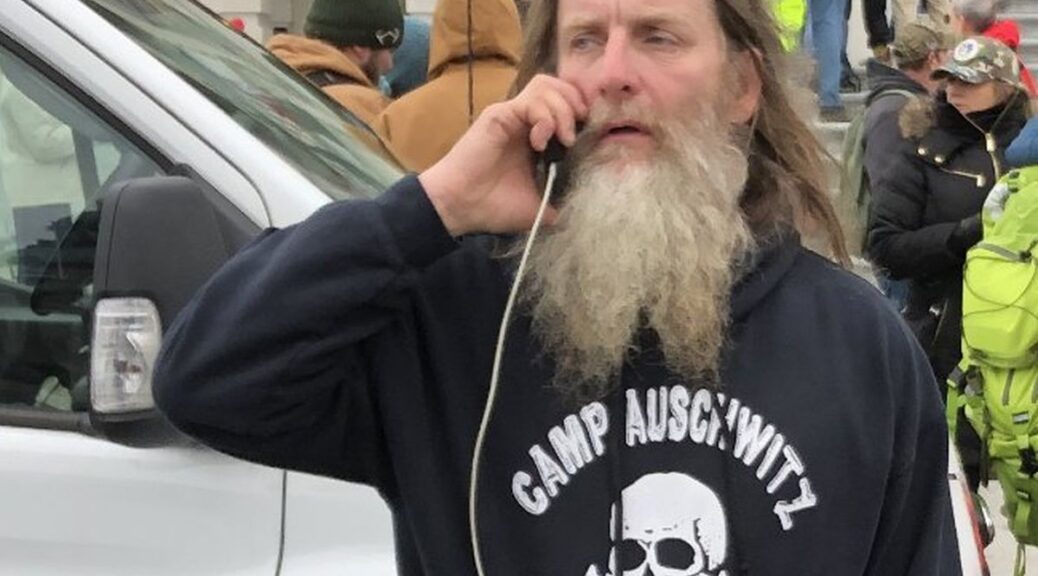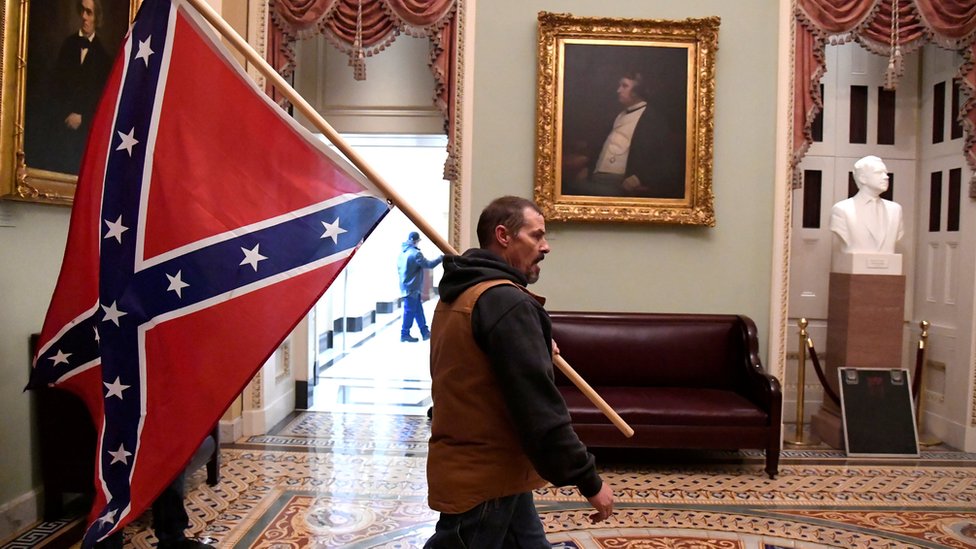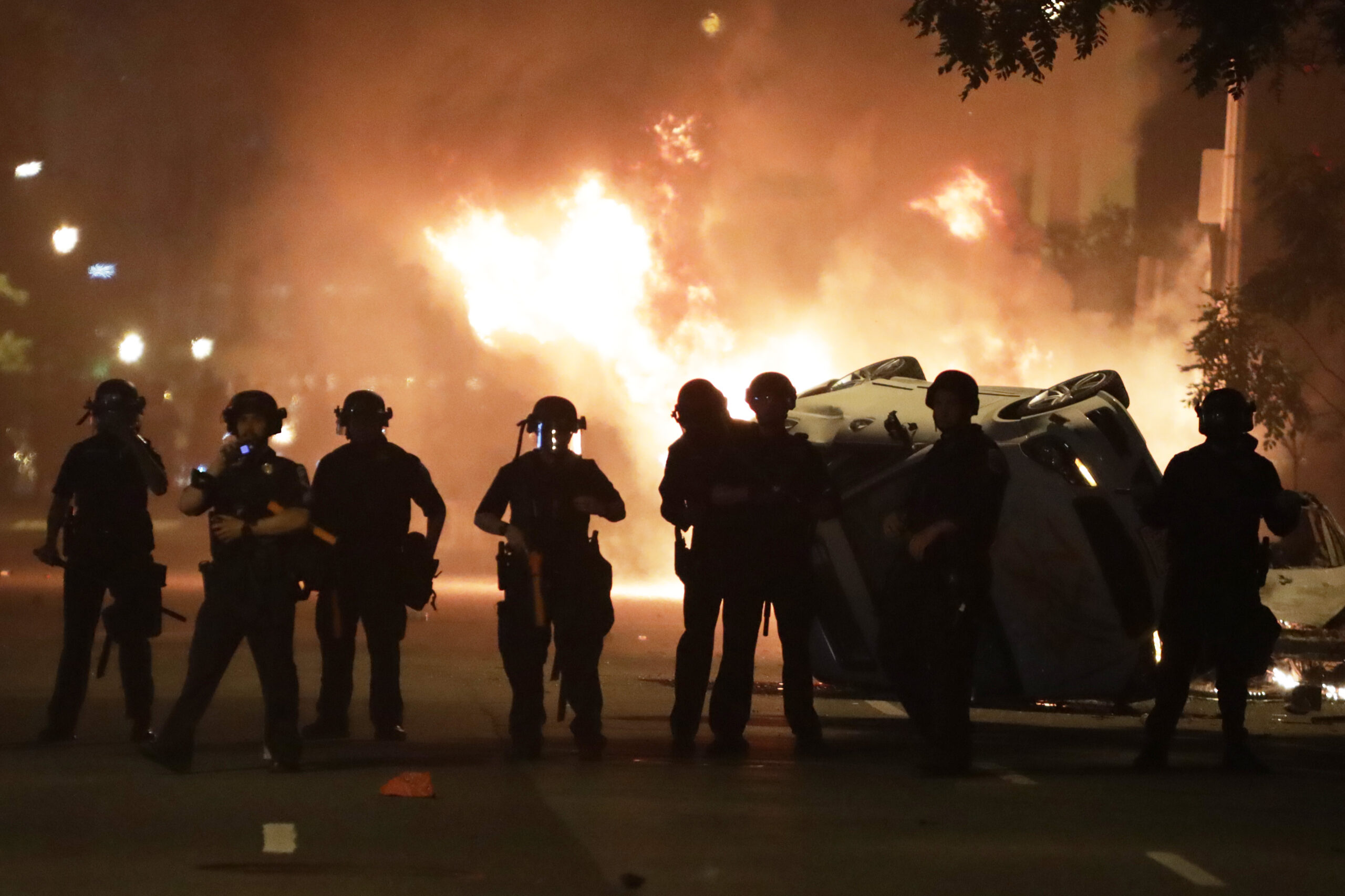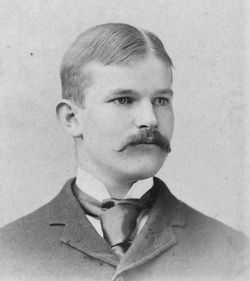In the wake of the deadly attack on the Capitol building by a right-wing mob last week, I have found some of the rhetoric used by those who have condemned the attack as troubling as that used by those who provoked and encouraged it in the first place.
I was not surprised by what I witnessed last Wednesday. Many of our leaders, however, seemed absolutely shocked that a large group of violent imbeciles and cosplaying Punishers could assault this “beacon of liberty.”
Does anyone believe this anymore? While the Capitol dome certainly stands as a symbol of American power, that power has been deployed in the name of democracy far less often than many of our leaders seem to believe. The right-wing, racist violence we witnessed on Wednesday is as American as apple pie. Using violence to protect white power and white privilege is one of the things in which American lead the world, along side women’s basketball and incarcerating people of color.
The historian-turned-pundit Jill Lepore said in an interview on WBUR

that the events in Washington that left her feeling “speechless” were the sorts of things that occurred in other countries, not the United States. It was unfamiliar. “We are,” she said, “off the grid of the trajectory of American history.”
That is a mess of a sentence, but if it means what I think it means, I have to most adamantly disagree. No, Professor Lepore. What we saw on Wednesday was entirely consistent with American history. And from that trajectory and that grid, I swear to God I want off. That the United States is a nation committed to liberty and equality is the biggest lie in American history. Until we face that fact and address it in a meaningful way there is little hope for change.
This country was founded by treasure-seeking storm-troopers who carried with them across the Atlantic guns, avarice, steel and European religious bigotry. They enslaved and subjugated Indigenous peoples. The settlers who followed them came not for freedom but to extract a living from the soil. Whatever wealth they acquired was almost always built

upon the backs of millions of enslaved peoples who worked lands stripped away from their Indigenous occupiers at the point of a gun. There are many stories one might tell about Early America. Most of them are filled with exploitation, intolerance, violence, and greed.
It took a Civil War that killed more than 600,000 people to eradicate slavery, but in its aftermath Southerners and their conciliatory enablers rushed to reconstruct institutions that replicated the restrictions on African-Americans that stood before the war. Meanwhile, the armed forces of the United States continued to march against native peoples who refused to surrender their lives, liberties, and property to the United States.
Look around you. The United States, with less than five percent of the world’s population, is home to a quarter of its people who live their lives behind bars. When most Americans think about Indigenous peoples at all, they conjure images from the past. Few are willing to consider or are aware of the challenges these communities face today, and fewer still are willing to do anything to help.
On the same day that we learned that a stunning, multicultural coalition had elected the first Jew and the first African American to represent Georgia in the Senate, an armed white mob cried foul and stormed the United States Capitol, because they lost what all the evidence shows was a fair and free election. Those who stormed the capitol did not need to fear the inadequate police forces garrisoning the building. They knew, in their lizard brains, that law enforcement in this country too often and in too many ways acts to uphold white supremacy. They feared nothing. For that reason, among others, Wednesday’s violence was so depressing. Not because it was surprising or a new low, but because it was so familiar and so entirely predictable.





